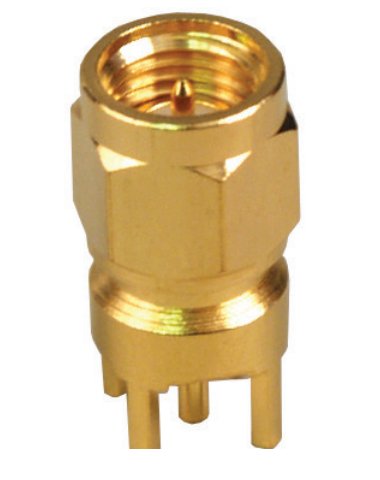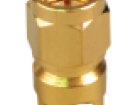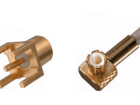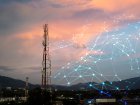News
The essential role of RF connectors in quantum computing
Quantum computing, the frontier of computational technology, promises to revolutionise various fields, from cryptography to drug discovery. Central to the functioning of quantum computers are radio frequency (RF) connectors. These components play a critical role in ensuring the precise transmission of signals required for quantum operations. Here, Alex Raymond, European product manager, at connector specialist PEI-Genesis, explore the importance of RF connectors in quantum computing.
Quantum computers leverage the principles of quantum mechanics to process information in fundamentally different ways than classical computers. Unlike classical bits, which are binary and can be either 0 or 1, quantum bits or qubits can exist in superpositions, allowing them to represent both 0 and 1 simultaneously. This property, along with entanglement and quantum interference, enables quantum computers to perform complex calculations at unprecedented speeds.
However, harnessing the power of qubits requires extremely precise control and measurement of quantum states, which is where RF technology comes into play. Quantum computers operate at very low temperatures and use RF signals to manipulate qubits. This makes the role of RF connectors crucial in maintaining signal integrity and ensuring the accurate functioning of the quantum system.
The role of RF connectors
Quantum states are fragile and must be maintained to prevent qubits from losing coherence. Therefore, maintaining the correlation and control of qubits is a fundamental challenge in the development of quantum computing technology. This challenge is exacerbated by RF "noise" from thermal, magnetic and mechanical sources.
High-performance coaxial cable assemblies, comprising both the cable and connectors are essential for delivering precise, high-frequency microwave signals to the qubits, enabling state changes and operations. These assemblies help mitigate the effects of environmental noise and other sources of signal degradation, allowing for more reliable and accurate quantum operations.
RF connectors must meet several requirements to deliver precise and stable signals for controlling qubits, including, low loss, low noise, stability in extreme environments, high frequence range and immunity to magnetic interference.
Low loss and low noise
In RF connectors, low loss refers to the minimal attenuation of signals as they pass through the connector. Quantum operations require high precision, and any signal degradation can lead to errors in qubit manipulation and measurement. Low loss connectors ensure that signals maintain their strength and integrity from source to destination.
Lower signal loss also reduces the amount of heat generated in the system, which is especially important in cryogenic environments. Excess heat can disturb the delicate thermal balance required to maintain quantum states.
To achieve low loss, RF connectors are designed with precision engineering and high-quality materials. Gold plating on contacts, precise manufacturing tolerances, and the use of low-dielectric-loss materials are common practices. Additionally, the design often includes features that ensure tight and stable connections, minimising reflections and resistive losses.
Low noise in RF connectors is equally critical, as quantum systems are highly sensitive to external and internal disturbances. Low noise performance ensures that the signal remains clean and free from interference, which is essential for accurate quantum operations.
Vibration and mechanical disturbances can introduce noise into RF signals, which means that connectors used in quantum computing must be designed to be mechanically robust and stable, ensuring that connections remain secure and free from microphonics. The use of materials with low electrical resistance and high thermal conductivity helps in reducing noise. Superconducting materials are sometimes employed in advanced connectors to achieve near-zero resistance, thereby minimising thermal noise.
Extreme temperature conditions
Another essential feature for RF connectors in quantum computing is their ability to withstand extremely low temperatures. Quantum computers must be exceptionally cold to be stable, typically with temperatures reaching 0 Kelvin (-273 degrees C).
To adhere to the temperature requirements, RF connectors must be designed with materials like niobium and niobium-titanium or to feature metals and alloys that do not become brittle at cryogenic temperatures, such as certain stainless steels and copper alloys.
Reducing magnetic interference
Quantum computers transmit RF signals within a magnetic field, necessitating non-magnetic connectors in critical areas of the signal path as the presence of any magnetic material in these components may cause interference.
Connectors must effectively shield against magnetic influence, exhibiting minimal susceptibility and no field distortion. Manufacturers often use coatings and surface treatments that are applied to connectors to enhance their non-magnetic properties. For example, using non-magnetic plating materials like gold or palladium over connector surfaces can help mitigate magnetic effects.
PEI-Genesis offers a wide range of RF connectors, including Cinch’s innovative range of Johnson non-magnetic RF connectors. These connectors are made from high purity copper alloys for high performance and are designed with a 50Ω impedance and a maximum frequency range of 4GHz to 18GHz, making them ideal for quantum computing applications. With readily available stocks of Cinch Johnson in Europe, PEI-Genesis is able to deliver these connectors within 48 hours of ordering.
Quantum technology represents a groundbreaking advancement in computing performance, promising unprecedented capabilities yet posing significant complexity. To maximise the potential of quantum computers, specialised RF interconnect solutions with non-magnetic properties are essential. As quantum technology continues to evolve, the development of high-performance RF connectors will remain a key area of focus, enabling the realisation of the full potential of quantum computing.
To find out more about the RF connectors offered by PEI-Genesis, visit www.peigenesis.com.






